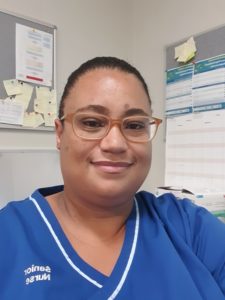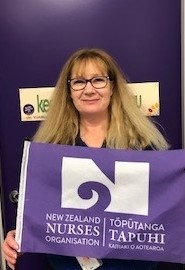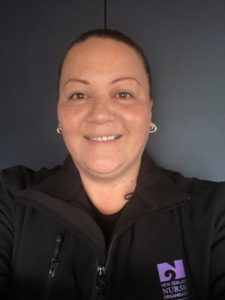
Workers delivering critical health services, who are COVID-19 cases and who have no or mild symptoms, can now be asked to return to work in Covid wards.
Wellington nurse Llanell Maarman said she knew of one emergency nurse who felt pressured to return to work despite not being fully recovered from COVID-19.
However, many of her colleagues felt it “makes sense” for COVID-positive staff to work with COVID-positive patients, if necessary, so were not opposed to the idea.
“Everyone wants to just get through it.”
Many were feeling the pressure, with increasing numbers of staff off sick with COVID or isolating.
“We are at simmering point, I would say. The staff are feeling the added pressure and we are calling on casuals more.”
With Omicron peak still looming, “we are still very much in the trenches”, she said.
As of March 9, there were 38 people in Wellington Hospital with COVID and 12 in Hutt Hospital.

NZNO kaiwhakahaere Kerri Nuku said the public health order change was another in a series of desperate changes to deal with the nursing shortage.
Nurses can still refuse to work if mildly symptomatic, but that many will be feeling the pressure not to leave their colleagues even further understaffed, she said.
“Only individuals can judge how unwell they are, and we really encourage nurses to be careful in what they commit to as symptoms can change very rapidly. They need to put their own wellbeing first.”
NZNO organiser Jo Coffey said while there had been no incidents of nurses or health staff with COVID-19 being asked to work so far in Wellington, many were concerned over the possibility, since the announcement was made this week.
Coffey had asked Capital & Coast District Health Board (C&CDHB) for reassurance that was not part of current planning. Chief nursing officer Chris Kerr referred Kaitiaki to communications staff for a response.
On Wednesday Auckland organiser Sharleen Rapoto said that nobody was yet working with COVID-19 under the new guidance in the city.

“My organiser colleagues have had reassurance from the district health board that the ‘ask’ would only happen if absolutely necessary and would be risk-managed.”
Meanwhile, Nuku said understaffing in nursing was only going to get worse at a time when they were needed the most.
“The government has to take urgent action now, to attract nurses … back into the workforce, and recruitment drives to encourage people into nursing careers.”
Director of Public Health Caroline McElnay said on March 8 that critical health-care workers with COVID would be allowed to return to work earlier than usual if their absence would halt a critical health service.
The move would allow COVID-positive staff to work on COVID wards and leave isolation six days after returning two negative rapid antigen tests, she said. It only applied to workers who were fully vaccinated, asymptomatic or mildly symptomatic and who agree to return They must use an N95 mask and follow strict infection prevention and control rules.
McElnay said it was a “pragmatic” approach to allow the health system to keep functioning, which “balances the significant risk to patients when hospital services are not being able to operate against the small risk to patients from staff who have COVID with all the protections in place”.



